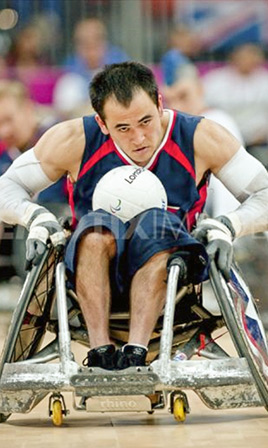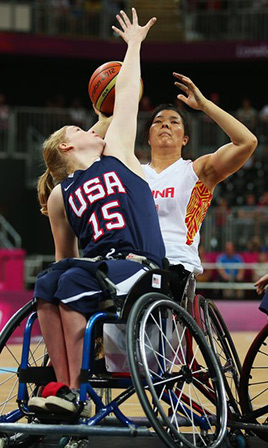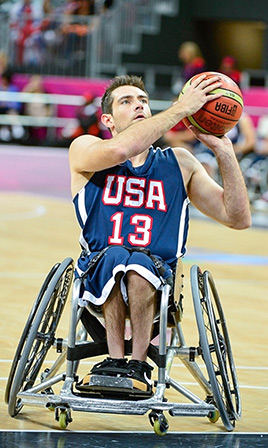Elite athletic abilities, medal counts and patriotic pride are big topics of conversation with the Rio Olympics just beginning. The Olympic Games are more than just the world's foremost sporting spectacle; they are about living out your passion, taking
part in something you love and living life to your fullest potential.
As the Olympics begin, consider the aspirational Olympic Creed: The most important thing in the Olympic Games is not to win but to take
part, just as the most important thing in life is not the triumph but the struggle.
The essential thing is not to have conquered but to have fought well.
You may not feel like you have a lot in common with Olympic and Paralympic athletes who have made it to this level of competition, but you do. Each and every one of us can live like an Olympian by choosing to take part, instead of sitting on the sidelines. These athletes have to overcome many of the same issues you and I face
trying to achieve our own fitness goals, including motivation, injuries and time restraints. Regardless, they continue, strengthening their abilities and living their passion through competition.
Take time to cheer for our athletes, but also let the inspiration motivate your own fitness goals. Turn the inspiration into action by lifting a little more weight, running a little faster or cycling a little farther. What's holding you back?
I've worked closely with the US Paralympic Development Program, and many spirited athletes, as a program coordinator for Courage Kenny Adaptive Sports and Recreation. Three Minnesota athletes, who got their start at Courage Kenny and truly live the Olympic Creed,
will be representing the USA in the 2016 Paralympic Games.

Chuck
Aoki, men's wheelchair rugby
Paralympic athlete, Chuck Aoki, has a rare genetic disorder called hereditary sensory autonomic neuropathy type II (HSAN2), and is unable to feel below his elbows or knees. At the age of 12, he began playing wheelchair basketball and rugby. Aoki who said,
"Wheelchair rugby has brought me my greatest successes so far," took home a bronze medal at the 2012 Paralympic Games, and will compete in the Rio Games.

Rose
Hollermann, women's wheelchair basketball
At the age of five, Rose Hollerman was left paralyzed from the waist down after a car accident. She began swimming, and from there, Hollerman participated in sled hockey, track and field, archery, tennis, cross-country skiing, and most notably, wheelchair
basketball. Wheelchair basketball has taken Hollerman around the world. This summer, she will compete in her second Paralympic Games.

Ian
Lynch, men's wheelchair basketball
At the age of eight, Ian Lynch started playing wheelchair basketball. He started competing with the Courage Center's Rolling Rowdies, which led him to playing professional wheelchair basketball in Rome, Italy, then to earning a bronze medal at the 2012 London Paralympics. Rio will be Lynch's third Paralympic Games on the US
men's wheelchair basketball team. "Competing in wheelchair basketball has yielded confidence, fitness, enjoyment and inspiration," said Lynch. "I will continue to [compete] as long as I keep strapping up!"









